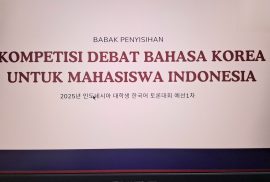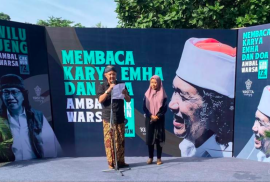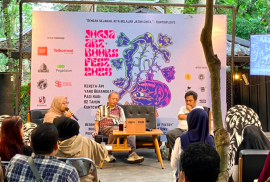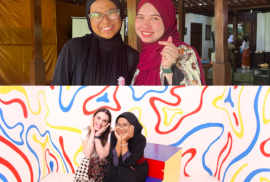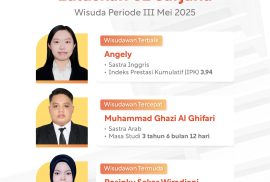Yogyakarta, May 16, 2025 — Students of the Korean Language and Culture Study Program, Faculty of Cultural Sciences, Universitas Gadjah Mada (UGM), once again demonstrated their active participation at the national level. On Friday (5/16), six students from the Korean Language and Culture Study Program at UGM took part in the Preliminary Round of the National Korean Debate Competition organized by KCCI. The preliminary round was conducted online via the Zoom platform.
This competition was joined by 12 participants from various universities across Indonesia who had previously passed a selection interview. The participants were then divided into two groups, each consisting of six individuals. In addition to their Korean language proficiency, the competition also tested participants’ critical thinking skills and their ability to deliver arguments effectively before the judges.
The UGM students who participated in this event were Ferdinanda Melinda Suryaningrum, Adzini Nurul Fatima Juliani, Alma Naya Kamila, Sabrina Zalfaa Arisanti, Mulya Ghefira Azzahra, and Layla Maryam Al-Muqaddas. Their participation became a valuable opportunity to sharpen their Korean language skills and broaden their academic horizons.
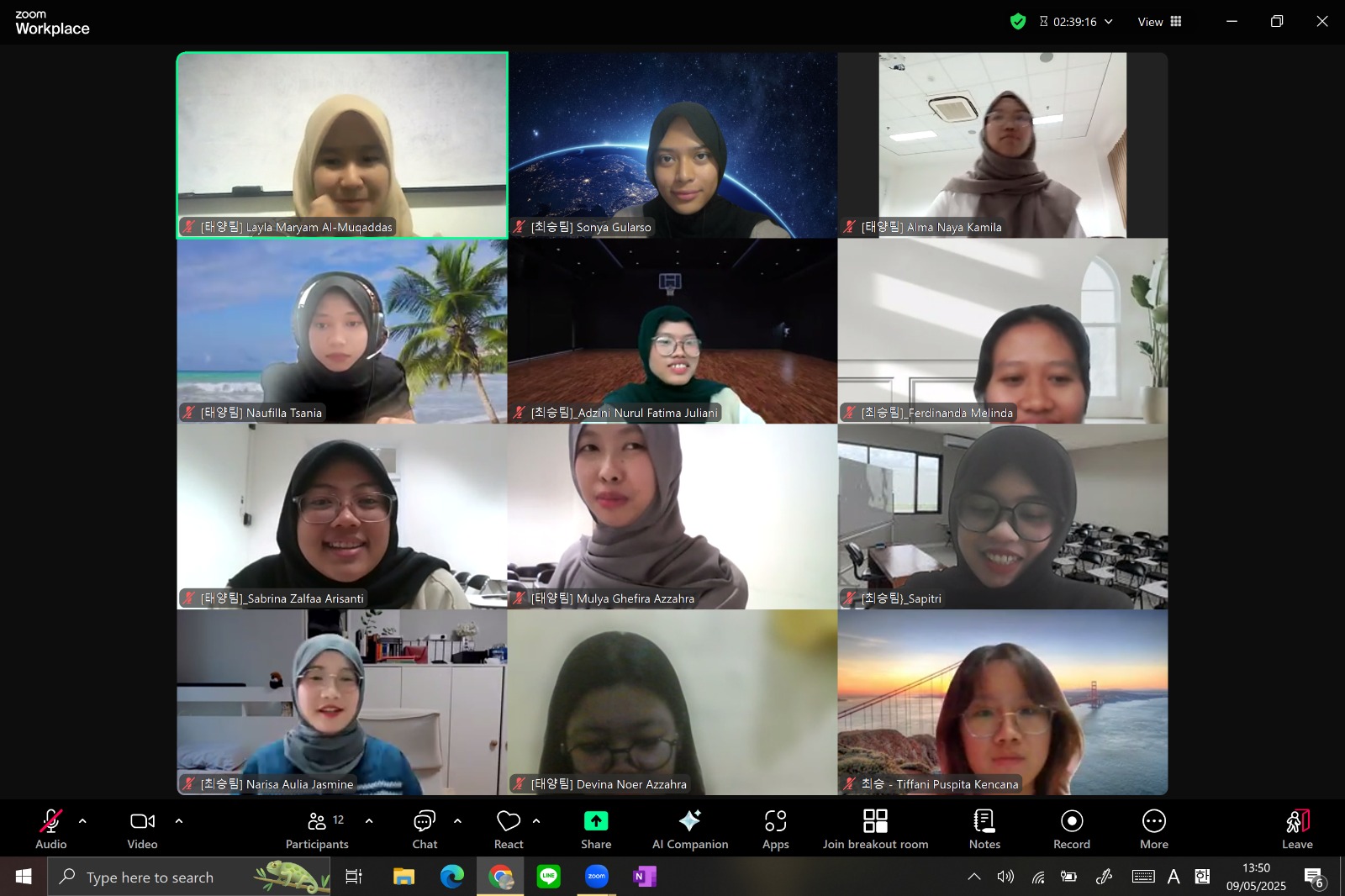
In separate interviews, the participants shared their impressions and messages regarding the competition.
“I’ve always wanted to try new things, but there’s always a lot to worry about. I was afraid, afraid of failing. But it’s okay to fail, right? So I gave it a try. I’m very grateful for making it to the semi-final; no matter what the result will be, I’m already thankful. However, it’s unfortunate that some of my friends from UGM didn’t make it. Meeting amazing people and gaining new experiences is such a wonderful thing. 모든 것이 새로우면 설레게 만든대요. 그리고 그것이 맞다고 생각해요^^.” — Ferdinanda Melinda Suryaningrum
“I joined this competition with strong determination to challenge myself. Even though the team assignment was random, I was actually glad to meet new friends and exchange experiences and knowledge. I learned a lot during the preparation for the preliminary round, and I believe that thanks to our teamwork and cohesion, our team was able to win. It’s a bit funny that we will have to compete against each other later, but that’s what competition is. Finishing one round doesn’t mean I can relax right away because the semi-final and final are still ahead. I’m also a bit sad that not all UGM teams can go together to Jakarta, but I will do my best to represent them and the department. 마지막으로, 여기까지 함께했던 친구들 모두 정말 수고했고 멋졌어! 다음에 또 다른 대회 있으면 우리 꼭 다시 도전해보자!!” — Adzini Nurul Fatima Juliani
“I’ve never even debated in Indonesian before, so I was extremely nervous participating in this. Even though I didn’t make it to the semi-finals, the experience was truly priceless!” — Alma Naya Kamila
“At first, I joined just to challenge my courage, even though I was scared and worried because I had to compete against fellow UGM friends. But thanks to that, I got to meet new people and quickly became close with them even though we had never met before. This competition will definitely be an unforgettable experience. Thanks to all members of 태양팀 and good luck to my UGM friends who advanced!” — Sabrina Zalfaa Arisanti
“Initially, I didn’t plan to join this competition because I felt scared and lacked confidence. But eventually, I challenged myself to at least try once. Having randomly assigned team members was a challenge in itself due to distance and each person’s busy schedule. On the competition day, the event went smoothly despite being held online. Interestingly, most of the opposing teams were friends I already knew. Even though our team didn’t make it to the semi-finals, we finished the competition feeling relieved and cheerful. It was a meaningful and memorable experience.” — Mulya Ghefira Azzahra
“When my friend invited me to join this debate competition, I was quite hesitant at first due to my lack of confidence. But with the support of my friends, I gathered the courage to participate. The training process was very enjoyable because I got to meet many amazing new people. Although I didn’t manage to advance, I’m glad I dared to take part in this competition. It was a very valuable experience for me. ⊂((・▽・))⊃” — Layla Maryam Al-Muqaddas
Through participation in this competition, it is hoped that UGM’s Korean Language and Culture students will be further motivated to continue developing their Korean language skills and build confidence in facing various challenges in the future.
[Public Relation of Korean Language and Culture, Nisa Khairuna S./Sherina Azmi]

